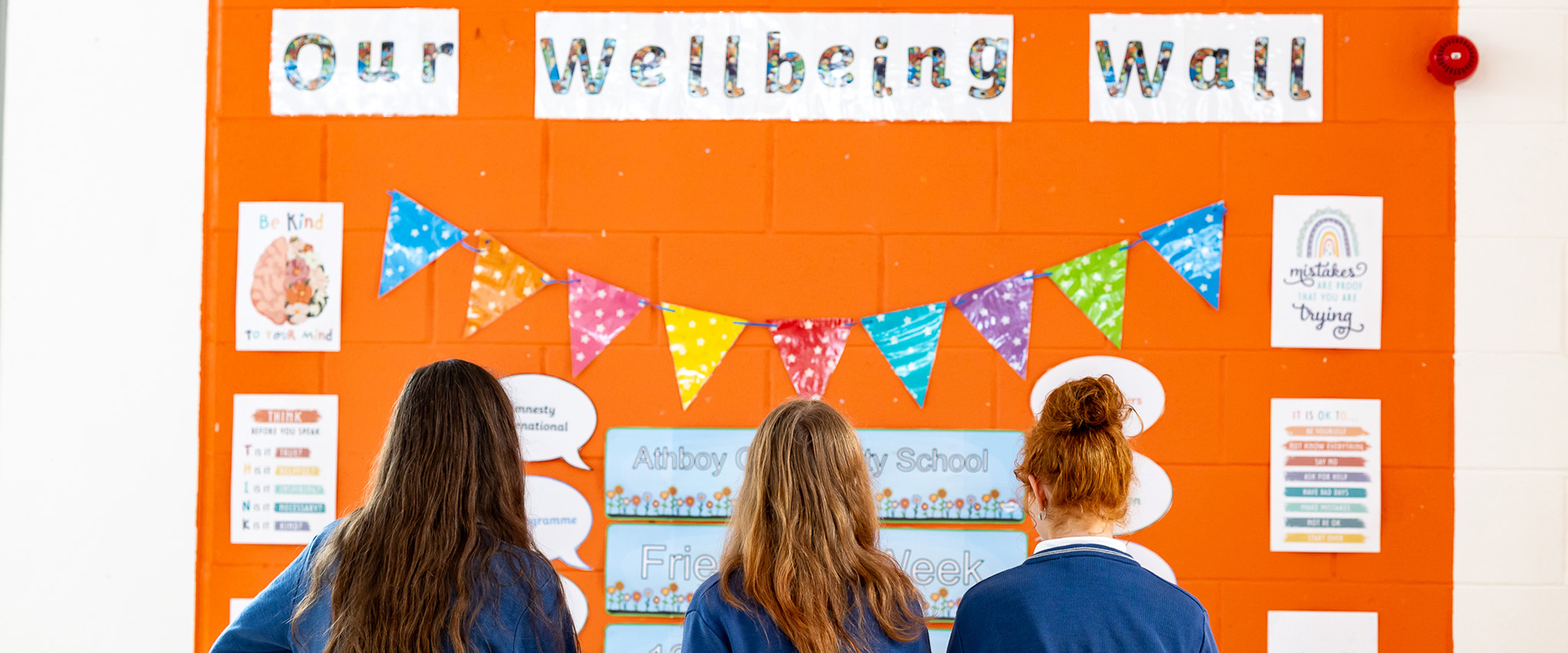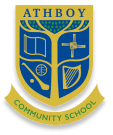
- + 353 (046) 948 7894
- office@athboycs.ie
-
Mon–Thu 8.50am - 3.40pm; Fri 8.50am - 1.12pm

SPHE Programme
Social, Personal and Health Education (SPHE) provides students with a unique opportunity to develop the skills and competence to learn about themselves and to care for themselves and others and to make informed decisions about their health, personal lives and social development.
Early adolescence is a time of significant change for young people, physically, emotionally and socially. Through the use of experiential methodologies and group work, students have the dedicated space and time in SPHE to develop their understanding and skills to learn about themselves, to care for themselves and others and to make informed decisions about their health and wellbeing in a rapidly changing world.
SPHE Aims
- To enable the students to develop skills for self-fulfilment and living in communities
- To promote self-esteem and self confidence
- To enable the students to develop a framework for responsible decision-making
- To provide opportunities for reflection and discussion
- To promote physical, mental and emotional health and wellbeing
- With such support, students may be enabled to participate as active and responsible adults in the personal and social dimensions of society and to make responsible decisions that respect their own dignity and the dignity of others. There is a growing recognition the social, personal and health education offered to students is as important as any other area of the curriculum.
SPHE Short Course: Wellbeing
SPHE is now part of Junior Cycle Wellbeing. SPHE provides opportunities for teaching and learning directly related to health and wellbeing. Through the use of experiential methodologies, including group work, SPHE aims to develop student’s positive sense of themselves and their physical, social, emotional and spiritual health and wellbeing. It also aims to build the student’s capacity to develop and maintain healthy relationships. Through studying aspects of SPHE, students have time to focus on developing personal and social skills including self-management, communication, coping and problem-solving.
By choosing to include this short course in the school’s wellbeing programme in junior cycle, students have a dedicated space and time to learn about themselves, caring for themselves and others and making informed decisions for their health and wellbeing.






 App
App